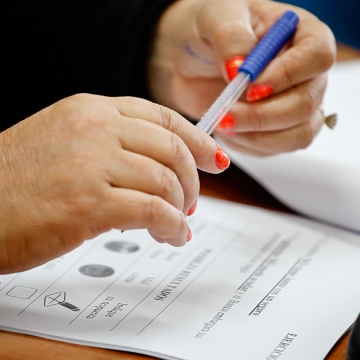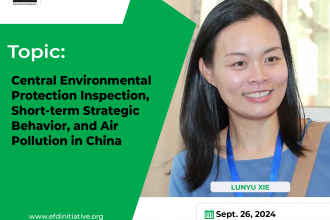Social ties at work and effort choice: Experimental evidence from Tanzania
Abstract
Many firms hire workers via social networks. Whether workers who are socially connected to their employers exert more effort on the job is an unsettled debate.

Many firms hire workers via social networks. Whether workers who are socially connected to their employers exert more effort on the job is an unsettled debate.
• Overall, the NFPP has a moderately positive effect on forest cover in the program areas.
• The NFPP has a greater positive effect on forests held by village households than state-owned forests.
• The NFPP might achieve enhanced performance by (re)directing larger proportions of the program’s funds and forest restoration activities toward village forest managers.
8th Annual CECFEE Research and Policy Workshop will be held at Khajuraho, Madhya Pradesh, India in partnership with SRIJAN. Please mark your calendars for November 7-9, 2024 (Thursday to Saturday) and…

The 2024 SETI Annual Workshop, held on June 18-19, brought together a vibrant network of researchers, policymakers, and students for an engaging exchange of ideas and groundbreaking research. The…

The first EEU Seminar after the summer break will be held on Monday the 9th of September at 12:10 – 13:15 in B44. The seminar will be held by Frikk Nesje and he will be presenting on the topic of…

The Inclusive Green Economy in Practice Program has launched a new important event: The annual, national IGE Forums, which is the main event for disseminating knowledge from the program. The first IGE…

Welcome to attend this free online EfD Webinar! Time: September 26, 13.00 CEST (1 p.m.) Presenter: Lunyu Xie. Topic: "Central environmental protection inspection, short-term strategic behavior, and…